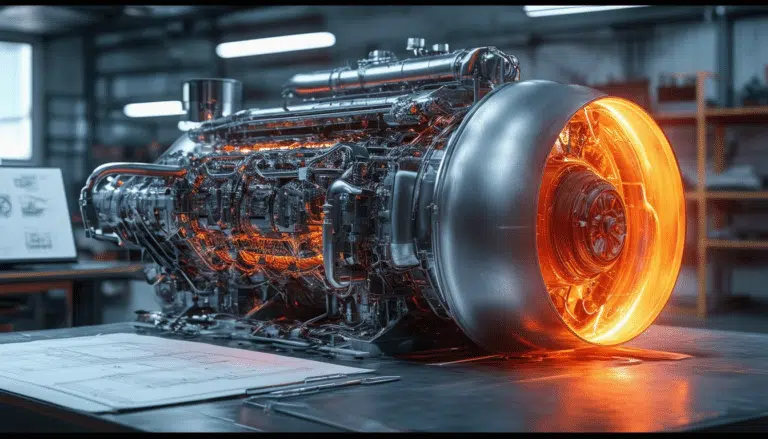El ahorro de combustible y su relación con el medio ambiente

Fuel savings have become a crucial topic in today’s era of environmental awareness. Using less fuel not only reduces financial costs for drivers but also minimizes the environmental impact associated with fossil fuel combustion. The reduction of polluting emissions and the improvement of air quality are direct benefits that arise from more responsible driving practices. Adopting sustainable habits in vehicle use significantly contributes to the preservation of the environment and helps combat climate change, making fuel savings essential not only for the wallet but also for the future of the planet.
Fuel savings are a vital aspect in the fight for the sustainability of the environment. By reducing fossil fuel consumption, not only are the economic costs for users decreased, but one also significantly contributes to the reduction of the carbon footprint and the improvement of air quality in our cities. Implementing efficient driving practices and opting for more sustainable vehicles are important steps to achieve a positive impact on our surroundings.
Impact of fossil fuel use
The excessive use of fossil fuels has multiple negative consequences for the environment. The polluting emissions from vehicles and factories contribute to climate change and exacerbate public health problems, especially in congested urban areas. Besides the carbon footprint, gasoline and diesel generate pollutants that deteriorate air quality, which can result in respiratory diseases and other health complications for residents.
Strategies for fuel savings
There are various practices that, when implemented, can generate significant fuel savings. Driving cautiously, avoiding harsh accelerations, and maintaining a constant speed are some of the most effective methods. It is also recommended to take advantage of fuel cutoff during descents and avoid prolonged idling. These habits not only help conserve fuel but also reduce emissions of pollutants into the environment.
The importance of efficient vehicles
Choosing more efficient vehicles is crucial in reducing environmental impact. Cars equipped with eco-driving technologies and renewable energy systems represent a more sustainable option. Furthermore, opting for hybrid or electric cars allows for lower fossil fuel consumption. Investments in innovation within the automotive sector are essential for a more sustainable and less polluting future.
Maintenance and fuel savings
The proper maintenance of vehicles plays a crucial role in fuel efficiency. Techniques such as regular cleaning of the injection system, caring for the tires, and maintaining the exhaust system ensure optimized car performance, which translates into lower fuel consumption. Additionally, performing regular checks helps detect problems that could increase fuel expenditures and, consequently, the environmental impact.
Economic and ecological outcomes of fuel savings
Fuel savings have direct repercussions on the economy of households and businesses. These practices not only reduce fuel costs but also promote a more sustainable lifestyle. By implementing methods such as using public transportation or carpooling, associated vehicle usage costs can be significantly lowered while contributing to environmental conservation.
The importance of collaboration and education
Education and awareness about fuel savings are critical factors in fostering sustainable habits. Community and government initiatives should focus on disseminating information and promoting eco-friendly practices. It is essential to engage the community in campaigns that encourage responsible use of fuels and showcase the economic and environmental benefits.
The implementation of practices for fuel savings and the use of efficient vehicles is key to mitigating environmental impact and promoting a healthier future. Opting for sustainable technologies, performing regular maintenance, and adopting responsible driving habits are essential steps toward greener mobility and a cleaner planet.
For more information on optimizing fuel consumption, you can consult the following resources:
- Effective metrics and measurements in fuel savings
- Five strategies to maximize fuel savings in hybrid vehicles
- The role of sustainable mobility in reducing fuel expenses
- How to choose more fuel-efficient vehicles
- Common mistakes that increase fuel expenses
The importance of fuel savings in protecting the environment
Fuel savings have become a primary necessity today, both for economic and environmental reasons. The excessive use of fossil fuels not only depletes natural resources but also significantly contributes to air pollution. The burning of gasoline and diesel releases a large amount of polluting emissions, which affect air quality in urban areas and have adverse effects on public health.
In addition to the direct effects on air quality, high fuel consumption increases the carbon footprint of individuals and organizations. The pursuit of more efficient and responsible consumption can play a crucial role in the fight against climate change. As efficient driving practices, such as avoiding harsh accelerations and maintaining a constant speed, are adopted, a decrease in fuel consumption and, consequently, in greenhouse gas emissions can be observed.
Incorporating sustainable habits, such as using public transportation, car-sharing, or opting for biodiesel, is fundamental to reducing environmental impact. Moreover, proper vehicle maintenance can improve fuel efficiency and contribute to a cleaner future. In this regard, the intervention of governments and companies in promoting clean technologies and sustainable alternatives is crucial to advance towards a more eco-friendly transportation model.
Finally, raising awareness about the importance of energy savings and the conscious use of resources is essential to foster a positive change in society. Adopting these habits will not only result in economic savings but also contribute to the preservation of the environment for future generations.




